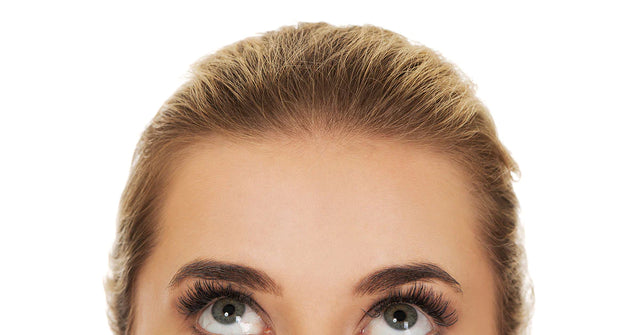Have you noticed that your complexion is losing its radiant glow or becoming flaky, dull, and itchy lately? These are signs of dehydration in your skin and can appear even if you do not typically have a dry skin type.
The complexion can become dehydrated for several reasons, including environmental factors like the weather, a poor skincare regimen, or simply not drinking enough water daily. In this article, we’ll discuss the most common signs that your skin is lacking in moisture and the possible causes and give you some insight into how to correct the issue.
Signals that Your Skin is Dehydrated
What does dehydrated skin look like? If your skin is not usually dry, but you begin to notice changes in your complexion similar to this type, chances are you need to boost your moisture levels.
Skin dehydration can occur no matter what your skin type, and it is not specific to the typically dry skin. These are some common signs of a lack of adequate moisture in the skin.
Sign #1 - Dull
A dull, lackluster complexion indicates a buildup of dead skin cells on the surface layer, which may result from insufficient moisture. When your skin lacks the hydration it needs, the outer surface does not shed dead cells readily, leading to clogged pores, possible breakouts, and a drab appearance. If your complexion is taking on a dull sheen, this is a clear sign that your skin is dehydrated, and you need to enhance its moisture levels.
Sign #2 - Itchy
One of the most common signs of dehydration is itchy skin and a flaky complexion. When your skin has inadequate moisture, it leads to cracks in the surface and irritation. The dead skin cell buildup can become itchy as a natural response, provoking you to scratch the areas to remove some unwanted cells.
In addition, the cracks that develop when your skin lacks moisture could allow damaging bacteria to enter, leading to breakouts or other skin conditions which cause itchiness.
Sign #3 - Tight
When your complexion is stripped of moisture due to climate changes, insufficient water intake, UV rays, or other factors, it often becomes extremely tight. This is another effect of having a buildup of dead skin cells on the surface and poor turnover, and it's one of the consequences of a blockage in your skin’s natural moisture barrier.
Sign #4 - Increased Skin Sensitivity
While your complexion may not usually fall into the category of sensitive skin that is depleted of hydration and cannot protect itself from environmental stressors and harmful bacteria. This makes it more vulnerable to the elements, as well as to certain skincare products.
Can dehydration cause skin rash? When the moisture barrier is not functioning properly, it leaves your skin open to rash and dry and itchy skin that is much more sensitive to external elements.
Sign #5 - Dry
Is dry skin a sign of dehydration? Most of the time, dry skin occurs due to insufficient oil production, which may have causes like hormone shifts, an oily skin type, or an underlying medical condition. Dehydration, in contrast, results purely from a lack of adequate moisture in the skin. However, dry skin may be a symptom that does occur along with skin dehydration.
Sign #6 - Rough
Skin that is lacking in moisture can lose much of its elasticity, causing it to become rough. You may notice patches of dry skin that are hard to the touch when your complexion is dehydrated. This is often caused by a buildup of dead skin cells in certain areas of your skin, which develop into rough areas on the surface.
Sign #7 - Flaky
Another typical sign of dehydrated skin is flakiness. As we have explained, when your complexion lacks hydration, cell turnover is poor and there is a buildup of dead skin cells on the surface. This buildup can begin to shed, causing bits of skin to flake off in an attempt to remove the unhealthy dead cells.
Why is Your Skin Dehydrated?
If your skin type is not normally dry, you may wonder why your complexion sometimes lacks moisture leading to the unpleasant symptoms we have described.
There are both environmental and lifestyle factors that may contribute to dehydration. These issues can easily be solved with changes in your lifestyle and skincare regimen, returning to a healthy and hydrated complexion. Some of the most common reasons this problem develops are as follows:
Weather
Harsh weather conditions may strip the skin of moisture, leading to dehydration. This is particularly an issue during the colder months of the year when the sweat on your face evaporates more quickly, removing the hydration your skin requires to stay healthy. In addition, people tend to drink less water in the colder months, exacerbating the issue.
Dehydration
The primary cause of dehydrated skin is simple: your complexion lacks moisture. To correct the issue, ensure you drink enough water daily to keep up your hydration levels. You should also include foods in your diet that help keep your skin moist.
In addition, make sure that as part of your twice-daily skincare routine, you use a rich, deeply hydrating moisturizer like Infusoderm to stave off the potential symptoms and keep your complexion fresh, healthy, and hydrated. This formula also revitalizes and rejuvenates, defends against damage, and promotes a radiant glow.
Harsh Skincare Products
If you’ve noticed signs of dehydration in your complexion, look at the products you are currently using as part of your routine. All of the skincare you use should be gentle, non-irritating, all-natural, and free of parabens, sulfates, and other chemical or artificial additives which can lead to dryness and skin irritation.
Harsh ingredients can strip your skin of the natural oils which keep it hydrated and balanced in terms of moisture levels. The Solvaderm collection offers a range of all-natural, safe products, including a line of rich moisturizers and serums to keep your complexion from dehydrating.
Hot Showers
Many of us love a nice hot shower in the morning or at the end of the day, however, it’s a little-known fact that the heat and steam cause your skin to lose moisture. The high temperature causes you to sweat, which is the body’s attempt to cool the skin to restore the proper balance.
If you take boiling showers regularly, some of the signs of dehydration can start to appear. The amount of time you stay under the hot water is also relevant, as long showers can make the problem worse. While we’re not saying that you have to switch to cold temperatures, we recommend that you aim for a warm shower that doesn’t overheat your skin most of the time.
FAQs
Question #1 - How does dehydration affect your skin?
When your complexion lacks sufficient moisture, it can lead to issues such as dry, flaky, rough, tight, and itchy skin, which is more sensitive than usual. This occurs even if you do not typically have a dry complexion.
These signs of dehydration on the skin indicate that you need to take in more water and make other simple lifestyle changes to correct the problem, like using gentle skin products, a hydrating moisturizer and night cream, protecting your skin from harsh weather, and taking warm showers instead of hot.
Question #2 - What’s the difference between dry and dehydrated skin?
The most common skin types are normal, oily, dry, combination (oily + dry), and sensitive. Having dry skin is a classification, while a dehydrated complexion is more of a condition that can occur due to factors like drinking too little water, harsh or cold weather, taking hot showers, or using abrasive skincare products which don’t adequately moisturize your complexion.
While your skin type tends to stay fairly stable over time, dehydration is an issue you can correct by drinking more water daily, using gentle skincare products free of additives like sulfates or parabens, moisturizing regularly, and changing other lifestyle habits which can exacerbate the problem.
Keys Takeaways
All of the common skin types may sometimes become dehydrated and start showing symptoms like dullness, flakiness, dryness, roughness, extra sensitivity, and lack of elasticity at times. This may be particularly true if you live in a part of the world where there are changing weather conditions and cold winters, don’t drink enough water daily, take showers that are too hot, or use harsh skincare products.
One way to correct this issue is to reevaluate your skincare routine by purchasing products that are gentle, non-irritating, free of harmful additives, and deeply hydrating. Take a look at our quality collection of creams and serums that nourish, moisturize, repair, revitalize, and keep your complexion from dehydration, so it stays in optimal condition.
Mentioned in this article
More stories

Oily Skin On Your Forehead: Why And How To Treat It




